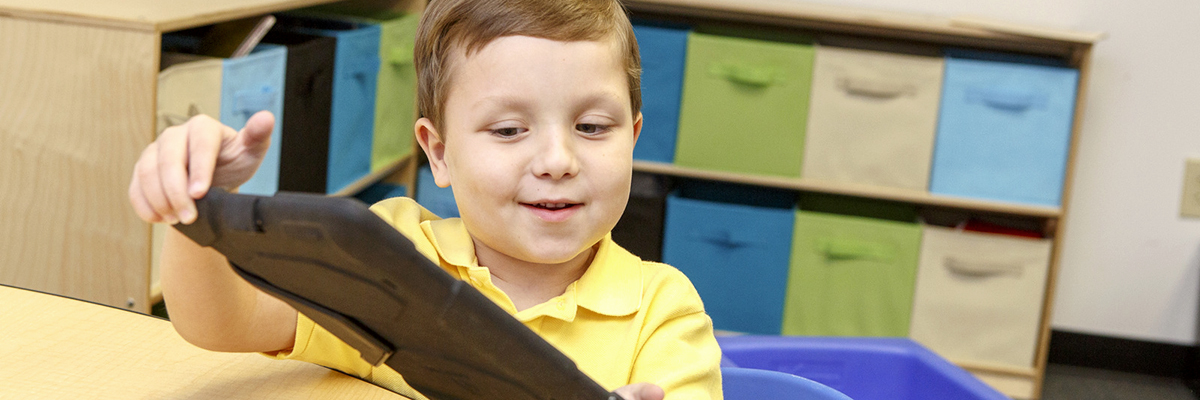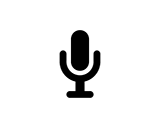Speech, Language, and Hearing Sciences BS
Students study the production of speech, mechanisms that influence language skills, the auditory system and its disorders, and disorders that affect the ability to speak and produce language

Speech-language pathologists and audiologists are health professionals focused on the processes and disorders of speech, language, and hearing.
Speech-language pathologists study the production of speech, mechanisms that influence language skills, and disorders that affect the ability to speak and produce language. They work with children and adults who have disorders affecting their ability to communicate. Audiologists study the physical, physiological and psychological aspects of hearing, and provide intervention and technology-based rehabilitation to persons with hearing loss and problems with balance. The speech, language, and hearing sciences program in the School of Behavioral and Brain Sciences provides the foundation for graduate study, leading to clinical certification and career opportunities as a speech-language pathologist or audiologist.
A graduate degree is required for clinical certification and state licensure in speech-language pathology. A doctor of audiology degree (AuD) is required for clinical certification and state licensure in audiology. Graduate degrees for both fields are offered at UT Dallas.
Degree Program
A Bachelor of Science degree in Speech, Language, and Hearing Sciences requires 120 credit hours: 42 hours from the University’s core curriculum, 36 hours in speech-language pathology and audiology courses, and 42 hours of electives. The program offers three areas of focus: speech-language pathology, audiology, and speech, language, and hearing science. Electives should be chosen based on interests and career goals. Students are encouraged to select electives in psychology or child learning and development to complement their coursework in speech, language, and hearing sciences. The minor requires 18 credit hours.
This program does not accept students who have previously completed an undergraduate degree program and are seeking this degree as a second undergraduate degree. Students who have completed an undergraduate degree previously, and are interested in a career in speech, language, and hearing sciences, should apply directly to a graduate degree program.
The UT Dallas undergraduate catalog provides an overview of the speech, language, and hearing sciences program, details the areas of specialization, lists the major and minor requirements, and explains the fast-track program, which enables undergraduate students to take up to 15 hours of graduate courses that will count towards both UT Dallas undergraduate and graduate degrees.
The university’s course look-up site will help you find specific classes and times to fit your degree plan and schedule. The CourseBook site includes links to syllabi, class evaluations, and textbooks for all of UT Dallas courses.
Students are required to earn two research exposure credits (REC) for each behavioral science core course in which they are enrolled, for a maximum of six total credits each semester.
Fast-Track Program
Students with strong academic records who intend to pursue a graduate degree in applied cognition and neuroscience, human development and early childhood disorders, or speech-language pathology at UT Dallas may consider the Fast-Track Program. If accepted, students may take up to 15 semester credit hours of approved graduate courses and use them both to complete the undergraduate degree and to satisfy coursework and semester credit hour requirements for the graduate degree. Only grades of B (3.000) or better in graduate courses may be used to meet graduate degree requirements.
To enroll in graduate courses, Fast-Track students must have completed 90 semester credit hours of undergraduate coursework, including specified prerequisites (typically, 18 semester credit hours of core courses in the field in which the student intends to apply). Application to the Fast-Track Program is accepted in the semester prior to the one in which the student plans to enroll.
Admission to the Fast-Track is similar to admission to the corresponding graduate program. Students should expect to submit a statement of purpose, letters of recommendation, and GRE scores as required by the graduate program. Consult a BBS advisor for program-specific admission requirements, deadlines, and application procedures. Admission to the Fast-Track Program is limited and based on student qualifications and available space in graduate classes.
Advising
Visit with an academic advisor in the School of Behavioral and Brain Sciences to create a degree plan. Freshmen must talk with an advisor before registering. All other students should consult an advisor before registering each semester.
To learn more about the BBS advising and mentoring system, visit our advising website.
Career Preparation
Professions in speech, language, and hearing sciences are consistently rated among the best careers for the changing job landscape. Speech-language pathologists and audiologists are employed in a variety of school and health care settings, such as schools, clinics and hospitals.
Students completing a Bachelor of Science degree in Speech, Language, and Hearing Sciences and who meet specified clinical practicum requirements are also eligible for state licensure as assistants in speech-language pathology and can provide therapy services under the supervision of a licensed speech-language pathologist.
In addition, junior and senior speech, language, and hearing sciences majors with at least a 2.5 GPA are eligible to receive college credit for a volunteer internship in the community by participating in a BBS internship class.
The University’s Career Center is an important resource for students pursuing their careers. Licensed counselors are available to help clarify career goals, provide strategies for mastering job interviews and writing professional cover letters and resumes, and help students connect with campus recruiters.
Research Portal
Undergraduate students are encouraged to participate in research laboratories, especially if they are interested in graduate school. Apply to participate in labs using the research portal.
Honors Program
Majors in the School of Behavioral and Brain Sciences who have junior or senior standing and have completed at least 12 credit hours with a GPA of 3.5 or higher may apply to earn BBS school honors.
Incoming freshmen with high standardized test scores and a high school GPA of 3.6 or higher should consider applying to Collegium V, a university-wide honors program.
Financial Aid
The School of Behavioral and Brain Sciences offers two scholarships for students who are full-time or part-time undergraduate students pursuing degrees in BBS. Applicants must be U.S. citizens or permanent residents with a FAFSA on file with the UTD Financial Aid Office. Please read the full criteria and requirements for more information.
The $3,000 Helen Small Scholarship and $1,000 Diane Milot Tucker Scholarship will be awarded annually.
The UTD Financial Aid Office awards financial aid based on need. More information can be found through the Office of Admission and Enrollment.
Program Contacts
Program Head
Emily Touchstone, PhD
Office: CRA 12.119N
Phone: 972-883-3626
etouchstone@utdallas.edu
Program Mailing Address
Speech, Language, and Hearing Sciences Degree Program
The School of Behavioral and Brain Sciences
The University of Texas at Dallas
800 W. Campbell Road, GR 41
Richardson, TX 75080
Program Resources
Speech, Language, and Hearing Sciences BS Fast Facts
This document provides a quick, printable overview of the program.
UT Dallas Library Resources
UT Dallas Library Resources in Speech, Language, and Hearing Sciences
Create Your Own Guide to UT Dallas
To compile all your academic, campus, and extracurricular interests into a presentation you can print out, follow the steps to create your own guide to UT Dallas.
Organizations
UT Dallas Psi Chi
American Speech-Language-Hearing Association (ASHA)
National Student Speech-Language-Hearing Association (NSSLHA)






